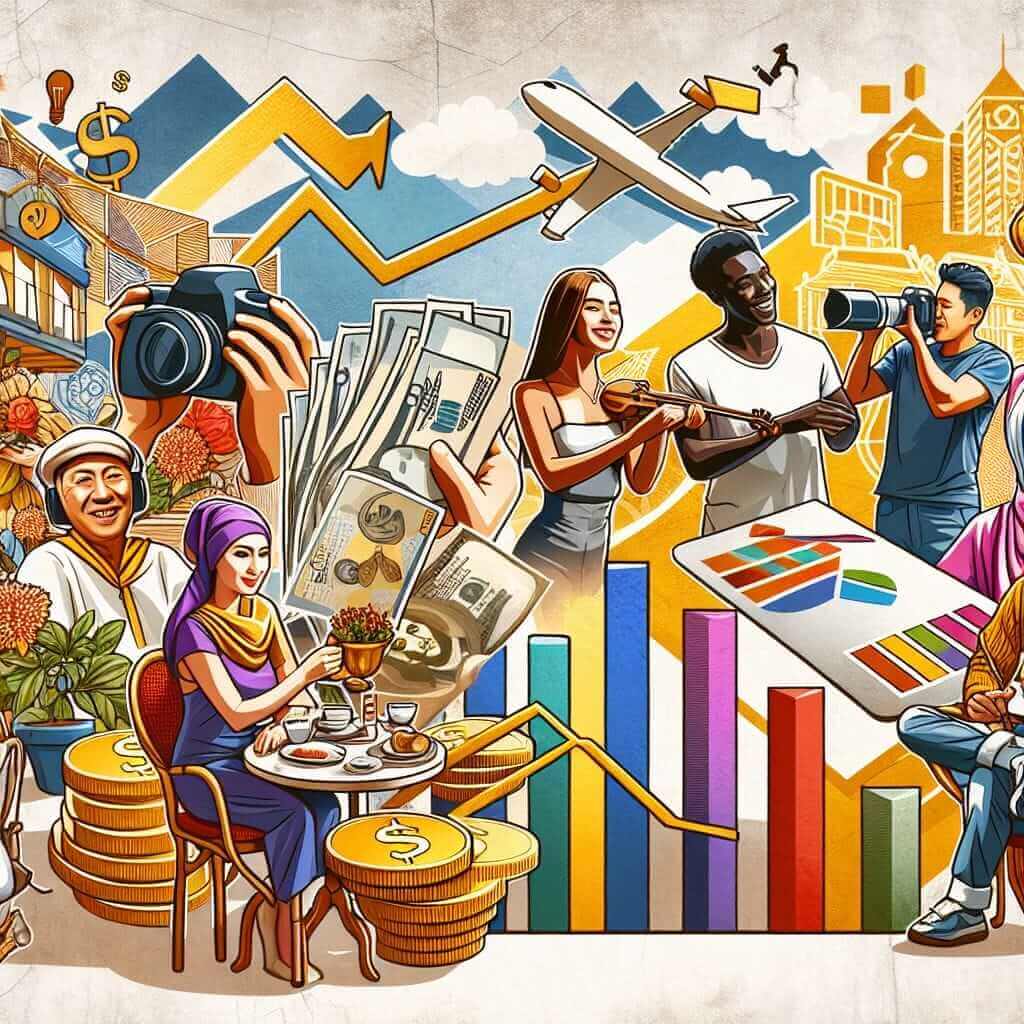As an IELTS instructor with over 20 years of experience, I often encounter students perplexed by the complex relationship between leisure and the economy. It’s a topic that frequently appears in the IELTS Speaking test, particularly in Part 3 where deeper analysis and discussion are expected. This article aims to shed light on this intricate relationship, equipping you with the necessary knowledge and vocabulary to confidently navigate this topic in your IELTS Speaking exam.
Understanding the Interplay of Leisure and Economy
While seemingly separate, leisure and the economy are intricately interwoven. Let’s break down this relationship:
The Economic Impact of Leisure
-
Job Creation: The leisure industry, encompassing tourism, entertainment, and recreation, is a significant job creator globally. Think about hotels, restaurants, theme parks, and countless other businesses that thrive on people’s leisure time.
-
Economic Growth: Consumer spending on leisure activities directly contributes to economic growth. A thriving leisure sector signifies a healthy economy where individuals have disposable income to spend beyond essential needs.
-
Investment Opportunities: The demand for leisure services and experiences encourages investment in infrastructure, technology, and innovation within the sector, further stimulating economic activity.
How the Economy Shapes Leisure
-
Income Levels: A strong economy with higher income levels often translates to greater spending on leisure. People have more disposable income, allowing them to afford travel, entertainment, and hobbies.
-
Work-Life Balance: Economic policies and work cultures influence work-life balance. Countries with shorter working hours and generous vacation time often see a rise in leisure activities.
-
Technological Advancements: Economic progress drives technological advancements which, in turn, influence leisure. Think about how online streaming services have revolutionized home entertainment.

Navigating the Topic in IELTS Speaking
Now, let’s apply this understanding to the IELTS Speaking exam.
Sample IELTS Speaking Questions
- How has the relationship between work and leisure changed in recent decades?
- What are the economic benefits of a thriving leisure industry?
- Do you think people spend too much money on leisure activities?
Tips for Success
-
Develop a Balanced Viewpoint: Acknowledge both the positive and potentially negative aspects of the relationship between leisure and the economy.
-
Use Relevant Vocabulary: Incorporate terms like “disposable income,” “consumer spending,” “economic growth,” “work-life balance,” and “tourism industry” to demonstrate your understanding.
-
Provide Specific Examples: Illustrate your points with concrete examples. For instance, you could discuss the growth of budget airlines making travel accessible or how streaming services have changed entertainment consumption.
Conclusion
Mastering the art of discussing complex issues like the relationship between leisure and the economy is key to achieving a high score in the IELTS Speaking test. By understanding the dynamics of this relationship and supporting your arguments with relevant vocabulary and examples, you’ll be well-prepared to impress the examiner. Remember, practice makes perfect!